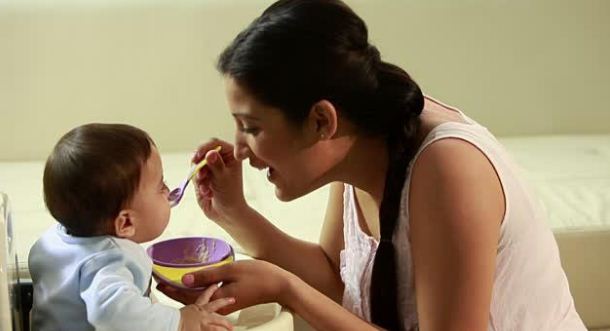Congratulations, your baby just turned one. It’s a big milestone- both for you as well as your baby. It also means your baby has officially turned into a toddler and he has probably started toddling around, faster than you can catch him. From growing every day to picking up new habits, there are going to be several changes, the biggest being in the area of food. He is no longer restricted to just baby cereal but consuming many different types of food.
Your baby’s eating varies in the first year of life. By the time he is one, a major part of a baby’s diet includes family food, served in development-apt food portions and textures.
Toddlerhood also comes a host of challenges including fussy eating. A toddler’s food intake can be unpredictable. In comparison to the time when he was introduced to 8-month baby food, his appetite and food intake can slow down as he turns one. Toddlers tend to have phases when their eating patterns change. In such a situation, nutritional deficiencies are a real problem that can be avoided by knowing how much and what to feed the baby. proper care without lacking any physical aspects helps in overall improvement for the baby be it be skin, food or other growth elements.
Coming to the Real Question
How much solid food your one-year-old must eat depends on a variety of things. One key point to consider here is that your baby is a little human being, and just like you, he has his own appetite. No baby eats the same amount as another baby. There’s always a bit of individuality. Babies are skilled at regulating their food consumption, also known as self-regulation. Therefore, you must always focus on your baby’s appetite signals and rely on his inherent ability to know how much to feed. As your baby turns one, food becomes the biggest contributor to satisfying your baby’s energy and nutrient needs.
Signs to Watch Out For To Ensure That You Are Not Under or Over Feeding Your Baby:
Your baby may want to continue to eat if he:
- Leans in for the spoon
- Opens the mouth
- Grabs for food and tries to put it in the mouth
Your baby may be full if he:
- Closes his mouth as the spoon comes close
- Spits out the food being fed
- Turns his head away as the spoon comes closer
Things to Keep In Mind:
Most paediatricians suggest that a baby never starves himself. Majority of healthy babies consume just the right amount of food that they need. Therefore, any urge to offer “just one more bite” must be avoided if the baby indicates that he is done. Generally, a year old would require about 1000 calories divided among three meals and two snacks per day to meet their energy and growth needs.
This doesn’t mean you need to always count on what he is eating.
The eating habits of a one-year-old can be unpredictable and vary from one day to the next. Selecting from a variety of nutrition-filled options and letting the child experiment with a wide variety of tastes and textures is the key to ensuring a balanced diet. As the child turns one, cholesterol and fats are also important for their growth and development. Remember kids don’t learn to chew with a grinding motion until they are four years old.
Therefore, it must be made sure that whatever they are eating is either mashed or cut into small, easily chewable pieces. Also, make sure that your child always eats in a seated position and under supervision.
Offering a well-balanced diet of solid foods shall ensure the right nutrition for your baby. Organic food options by Slurrp Farm are a great choice in this regard. Be it their pancakes, dosas or any other food item, everything is prepared with natural ingredients.







